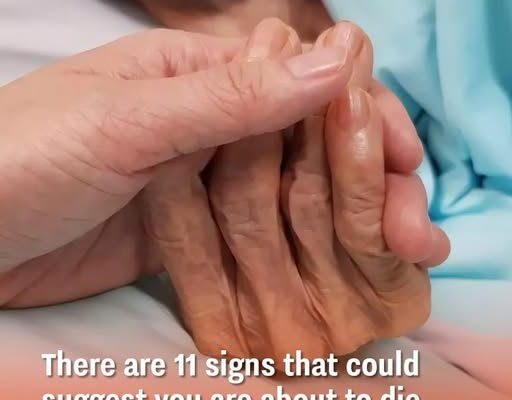11 Signs You Are About to Die That You Can Notice Yourself
It’s a question that crosses everyone’s mind: how do you know when your time is near, and what does it look like? While the thought may seem frightening, recognizing the 11 signs you are about to die can help prepare individuals and their loved ones for what’s to come. Hospice experts, such as Julie McFadden, highlight key indicators that often occur months, weeks, or even hours before passing, especially during a natural death.
Below are 11 common signs you are about to die, based on expert insights.
1. Lack of Appetite
As the body requires less energy, a person near the end of life may lose interest in eating or drinking. This is one of the earliest signs you are about to die, often occurring one to two months before passing. Keeping their lips moistened with balm can help ensure they remain comfortable.
2. Increased Sleep

In the weeks leading to death, individuals may sleep more as their body conserves energy. Despite this, hearing remains one of the last senses to diminish, so it’s advised to speak softly and respectfully to the individual.
3. Changes in Toilet Habits
Reduced food and fluid intake leads to less frequent bowel movements. In some cases, individuals may lose control of their bladder or bowels, which requires medical support to manage.
4. Muscle Weakness

Weakened muscles make it harder for a person to perform simple tasks such as walking or sitting up. Offering support and making adjustments to their surroundings can help ensure their safety and comfort.
5. Fluctuating Vital Signs
Irregular breathing, a faster heartbeat, or difficulty detecting a pulse are common in the final days. Blood pressure may drop significantly, signaling the body’s systems slowing down.
6. Lower Body Temperature
Decreased circulation in the extremities causes cold, pale, or mottled skin, often in the hands, feet, and legs. This is one of the physical signs you are about to die that loved ones may notice.
7. Breathing Changes

Grunting, rattling, or irregular breathing patterns, known as Cheyne-Stokes breathing, may occur. Adjusting their position can make breathing easier. Consult a doctor if additional support is needed.
8. Experiencing Pain
Pain levels may increase, and traditional treatments might not always provide relief. Observing and addressing their discomfort can help ensure they are as peaceful as possible.
9. Reduced Social Interaction
Withdrawing from loved ones is another common sign. A person nearing the end may choose solitude over socializing, which shouldn’t be taken personally. Plan visits that suit their comfort level.
10. Confusion and Disorientation
Confusion, memory lapses, or losing track of their surroundings often occur in the final days. Gently reminding them who is present and explaining what’s happening can provide reassurance.
11. Hallucinations
Distorted visions or conversations with unseen individuals are common. While it can be distressing to witness, it’s important to remain calm and remind them of their surroundings to ease their anxiety.
Preparing for the End
Recognizing these signs you are about to die can help loved ones provide better care and support during this emotional time. While it may be challenging, offering comfort and understanding can make the final moments meaningful and peaceful.
If you or someone you know is experiencing a bereavement, support is available through Cruse Bereavement Care via their national helpline at 0808 808 1677.
Please SHARE this article with your friends and family on Facebook.






